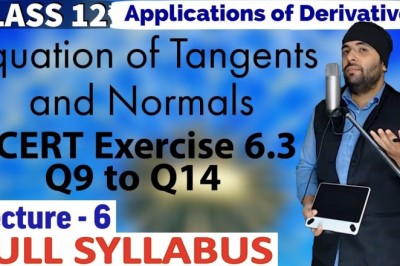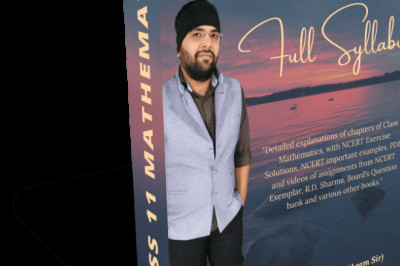views

It can also be said that two different ways of making great results are conflicting:’proper relaxation and relentless immersion.
Today, let’s look at the differences between proper rest’ and relentless immersion’, which have opposite perspectives as a way to make great achievements or increase work productivity, and the characteristics of each.
Many scientific experiments say that taking adequate rest’ is a more rational way to achieve more.
Most of these research results start from the premise that there is a limit to human concentration.“According to the results of my experiments, humans can only be productive about 4 to 5 hours a day.”
Like Chris Bailey said,
Most studies explain that the number of times humans can concentrate in a day is around 4 hours.
Also, some argue that the time that a human can maintain concentration at a time is about 20 minutes, and some even argue that the instantaneous concentration “does not last longer than 8 seconds.” These claims are human. There is a clear limit to your concentration, which leads to the conclusion that once you have consumed your concentration, you must rest and recharge it so that you can achieve better results.
That’s why people who insist on adequate rest argue that ‘relaxes immersion’ without rest like Crunch Mode rather destroys work productivity.
There are also quite a few experimental results that prove this. If you work more than 55 hours a week, your attention will drop to the bottom.
There is an experimental result that argues that the hours worked longer in the state of loss of concentration have no meaning in terms of productivity. ‘There are also experimental results.
The results of both experiments explain that even if you increase the amount of time you work in a state of lack of attention, it does not have any positive effect on productivity. This means that human concentration and attention have obvious limits, so if you do not recover concentration through proper rest, not only will your body be damaged, but it will not help at all in terms of productivity or work efficiency, but rather negative factors will work.
In summary, if you work in a state of reduced attention without taking enough rest, you will have to work more time in the end, and then your attention and physical strength will fall further, leading to a burnout state, resulting in a vicious cycle in which work efficiency is destroyed. Is to fall into the ring of.
That’s why people who emphasize adequate rest argue that it makes sense to take a break strategically, even to achieve more.
Also, appropriate relaxations say that taking a break often comes to mind with efficient work methods or creative strategies that they never thought of when working.
Taking it a step further, they also explain that great discoveries, such as the principle of buoyancy and the law of universal gravitation, came from the time of rest. “I think a good night’s sleep is the most important thing. I have to sleep for 8 hours to feel good all day.”
(Amazon CEO Jeff Bezos)
Jeff Bezos is known to get plenty of rest through 8 hours of sleep a day.
He believes that getting enough sleep will clear his head so that he can make good judgments.
Besides Bezos, Ariana Huffington and Eric Schmidt are executives who try to restore attention and maintain good shape through a good night’s sleep.
“We can’t be the smartest of the people around us, and it’s impossible to be the most educated.”
“But there is a one truly equal aspect to success.”
“It’s’effort’. It’s always possible to try harder than the person next to you.”
As Casey Naystat said,
Most of those who emphasize relentless immersion or hard work are the surest way to get ahead of others is to try harder than others.
They claim that they cannot control their talents and luck by themselves, but they can control whether they try or not. Contrary to these findings, the way we encounter more often in our daily lives is relentless immersion’ represented by crunch mode and hustle. They believe that working harder than others is a way to achieve greater things.
Here, one of the great business thinkers, Jim Collins, makes a different argument. “The trait of a great leader is deep restlessness'”
“Breakfast immersion is a source of resilience, a source of self-motivation.”
Jim Collins argues that if you stay immersed, you can feel the runner’s high’ phenomenon that track and field athletes feel.
If you run for more than a certain period, the feeling of fatigue disappears, your body becomes lighter, your head becomes clear, and you feel cheerful. In other words, if you are constantly immersed in what you are doing fiercely, you will not lose your attention but rather your immersion will rise and you will feel comfortable. It means that you reach the level of experiencing the moment you feel.
He says that when you reach this point, your achievement or work’s achievements’ become incomparably superior.
His argument contrasts sharply with the results of the experiments described above, but there are people like Steve Jobs and Winston Churchill who have made great achievements through real-life through relentless immersion.
In some cases, some may relate more deeply to what Jim Collins claims to be relentless immersion’.
Also, as studies on the plasticity of the brain have been actively conducted in recent years, the possibility that the degree of attention or concentration is not fixedly determined, but that it can develop sufficiently through training and effort has been continuously confirmed.
The fact that the brain is not fixed and has an ever-changing characteristic also means that the limit of concentration’ that people who advocate for adequate rest mentioned above can be sufficiently overcome through training and effort. Also, there is one aspect that people who insist on relentless immersion’ emphasize in common.
“You must find the work you love”
“The only way to do great things is to love what you do.”
(Steve Jobs, Stanford Graduation Congratulations)
People who emphasize constant immersion, as Steve Jobs said,
I am urged that you must find work that you work with with a sense of mission, work that you like, and prove your worth of existence.
This is because you can withstand this hustle or crunch mode, even if you work as if it would break, and you can experience the same as Runner’s High at some point. However, this word also has a paradoxical meaning.
If it’s not self-motivating, the Hustle and Crunch modes can be meaningless and can act as a poison. So, those who emphasize relentless immersion can also be seen as emphasizing why and sense of calling’.
A representative person who works in a relentless immersion’ method can be said to be Gary Beinnerchuck, CEO of Biner Media.
“The hustle is about squeezing your day down to the last drop. You have to put all your efforts into achieving your immediate goals. You have to save a minute and a second.”
Gary Vaynerchuk is one of the representative ‘ hustles who insist on putting all of the energy that was sucked up while working.
However, I think there is a strange overlap between the two disparate methods!
Although the conclusion and method are different,
Both methods claim high attention and immersion to achieve great things or produce productive results.
In that sense ‘Appropriate rest’ is more like a strategic act’ that uses rest for better attention and immersion.
‘Continuous immersion’ is to achieve a higher level of attention and immersion.
It’s a romantic act’ that pushes you to the limit.
Keep Visiting UlzzangKorea for Regular Updates.












